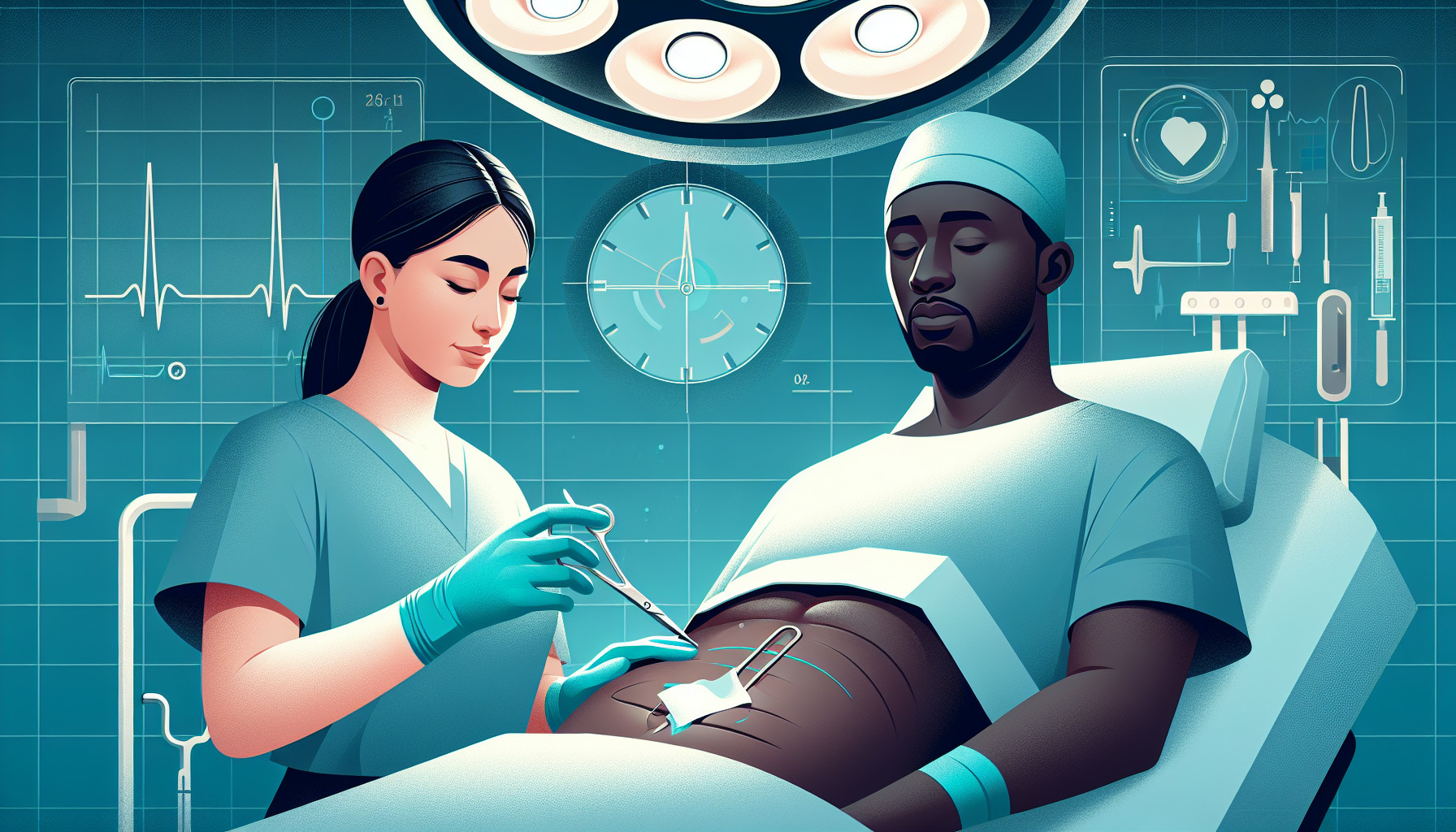Our Summary
A 46-year-old man who had no prior significant health issues went to the emergency department because he had been experiencing severe constipation, a bloated stomach, nausea, and vomiting for a week. A CT scan revealed a mass, similar to the shape of an apple core, in his sigmoid colon (the last part of the large intestine) and a dilation in his large bowel. No signs of cancer spread were found in CT scans of his chest, abdomen, or pelvis. A procedure was done to examine the mass in his sigmoid colon and found it almost completely blocked. However, samples taken from the mass showed no signs of abnormal growth or cancer. The doctors specializing in digestive disorders decided not to place a stent (a device to keep the passage open) because there was no diagnosis of cancer. The patient then had surgery to explore his abdomen, remove the sigmoid colon, and create a temporary opening in the abdomen for waste to leave the body (colostomy). His recovery went smoothly, and the final lab results showed that he had diverticulitis (inflammation in the digestive tract) with an abscess (a pocket of pus), but no cancer. A follow-up exam of his colon showed no abnormalities, and the colostomy was reversed three months later.
FAQs
- What symptoms led the 46-year-old man to seek medical attention?
- What procedures were performed on the patient during his treatment for diverticulitis?
- What were the final results of the patient’s pathology report after surgery for diverticulitis?
Doctor’s Tip
One helpful tip a doctor might tell a patient about diverticulitis surgery is to follow the post-operative care instructions carefully to ensure proper healing and avoid complications. This may include taking prescribed medications, eating a high-fiber diet, staying hydrated, avoiding heavy lifting or strenuous activities, and attending follow-up appointments with your healthcare provider. It is also important to communicate any concerns or changes in symptoms to your doctor promptly.
Suitable For
Patients with severe, recurrent, or complicated diverticulitis that does not respond to conservative management (such as antibiotics and dietary modifications) are typically recommended for diverticulitis surgery. Complications of diverticulitis that may necessitate surgery include abscess formation, perforation, fistula formation, or recurrent episodes of diverticulitis. Additionally, patients with complications such as bowel obstruction or stricture may also require surgical intervention. Patients with a suspected malignancy or a mass that cannot be definitively ruled out as cancer may also undergo surgery for further evaluation and treatment. Ultimately, the decision to recommend diverticulitis surgery is individualized based on the patient’s overall health status, severity of symptoms, and response to conservative management.
Timeline
Before surgery:
- Patient experiences symptoms such as constipation, abdominal distension, nausea, and vomiting for about a week.
- Workup is done, including a CT scan which shows a mass in the sigmoid colon.
- Further tests are done to rule out malignancy, including biopsies and imaging scans.
- Gastroenterology service declines to place a stent without a malignancy diagnosis.
- Patient undergoes exploratory laparotomy, sigmoid colectomy, and end colostomy.
After surgery:
- Recovery is uneventful.
- Final pathology shows diverticulitis with abscess formation and no malignancy.
- Patient undergoes completion colonoscopy which is unremarkable.
- Colostomy reversal is done 3 months later.
What to Ask Your Doctor
- What are the risks and benefits of diverticulitis surgery?
- What is the success rate of this type of surgery for treating diverticulitis?
- What is the recovery time and expected outcome after surgery?
- Are there any alternative treatments or options for managing diverticulitis?
- What kind of follow-up care will be necessary after surgery?
- Will there be any dietary or lifestyle changes required post-surgery?
- What are the potential complications or side effects of diverticulitis surgery?
- How long will I need to stay in the hospital after surgery?
- Will I need to make any modifications to my daily activities or exercise routine after surgery?
- Are there any long-term effects or considerations to be aware of after undergoing diverticulitis surgery?
Reference
Authors: Cain BT, Huang LC. Journal: Dis Colon Rectum. 2021 Sep 1;64(9):1041-1044. doi: 10.1097/DCR.0000000000002179. PMID: 34108366
